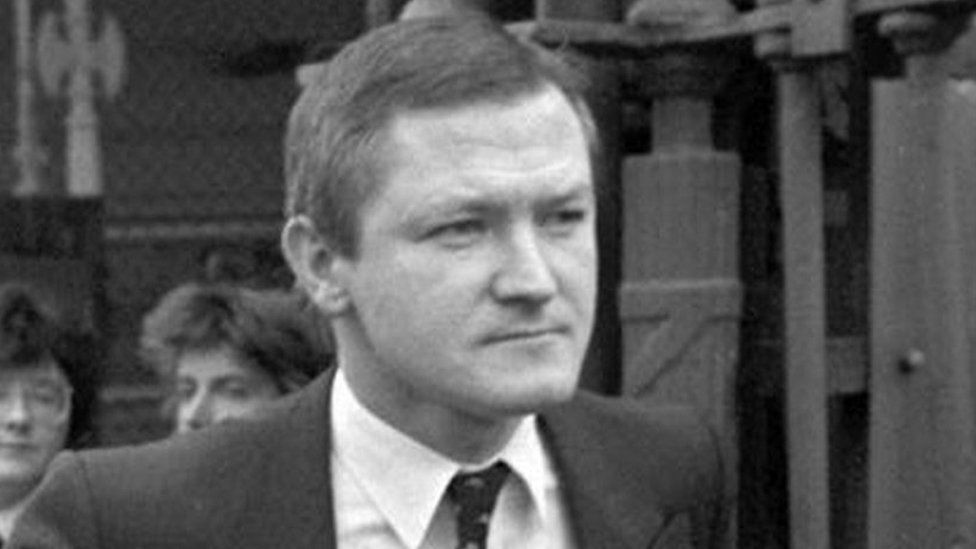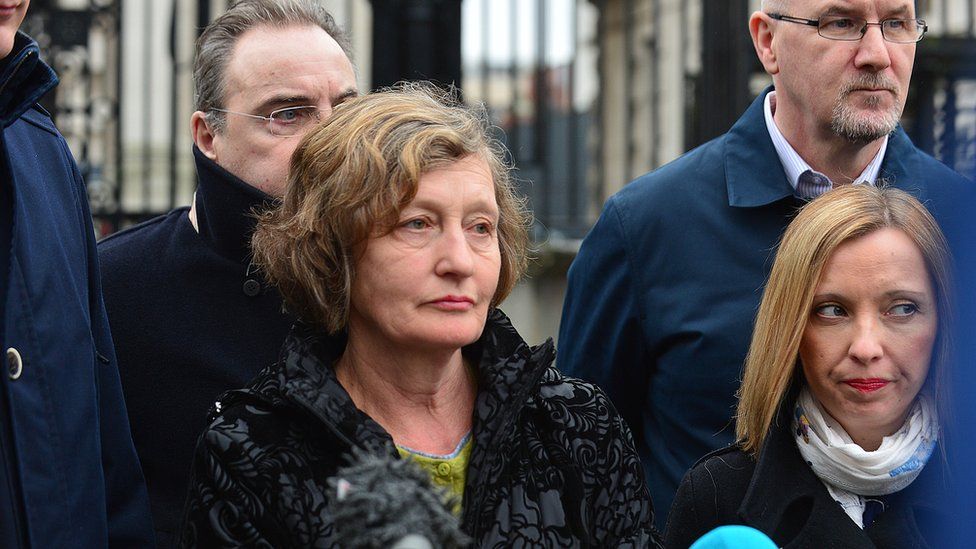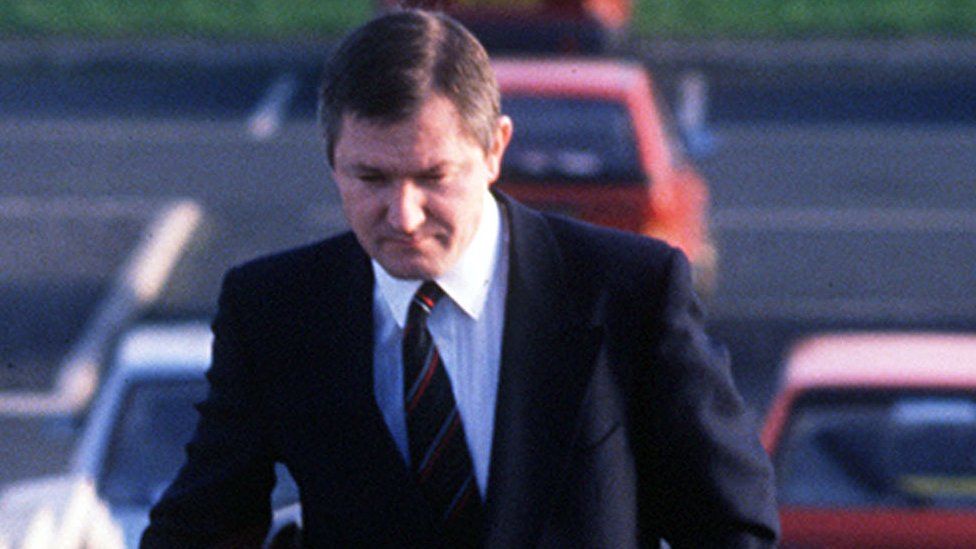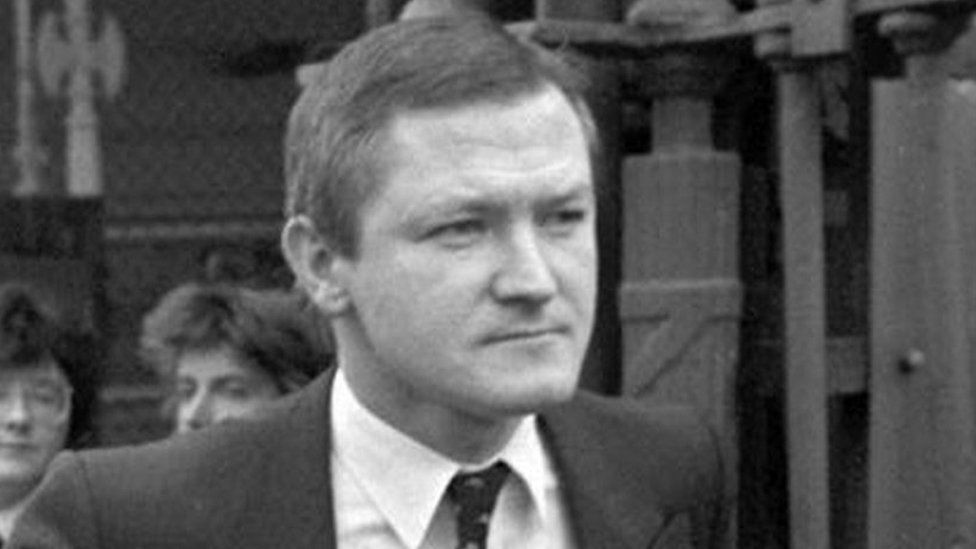 Pacemaker
PacemakerThe UK government remains in breach of its legal obligation to carry out an investigation into the murder of Pat Finucane, the High Court has ruled.
The 39-year-old Belfast solicitor was shot by loyalist gunmen in front of his wife and children in his home in 1989.
His family has campaigned for a public inquiry into his murder after several examinations of the case found state forces colluded in the attack.
His widow legally challenged the government over the lack of an inquiry.
In his ruling on Wednesday, the judge Mr Justice Scoffield quashed the government’s decision not to establish a public inquiry.
He also said that former Northern Ireland Secretary Brandon Lewis had unlawfully failed to reconsider calling an inquiry after a police review process had ended.
The judge said the government must make a new decision to address investigative deficiencies over the murder.
He said that Mr Finucane’s widow Geraldine found herself “in a sorry situation” nearly four years after the UK Supreme Court declared that previous investigation into the killing failed to meet the standards required by Article 2 of the European Convention on Human Rights.
The judge said: “I have no hesitation in concluding that the United Kingdom government… remains in breach of Article 2 on the basis of the ongoing delay in completing an investigation which satisfies the requirements of that provision.”
Legal battles
Mr Finucane was described in court as the victim of a scheme in which loyalist paramilitaries were infiltrated, resourced and manipulated to target those identified for assassination.
A barrister for his widow argued that only a public inquiry would uncover the full extent of a state-operated policy of “extrajudicial executions”.
In February 2019 the Supreme Court identified a continued breach of the requirement to hold an Article 2-compliant investigation.

Since then Mrs Finucane has mounted further legal battles against the government’s response to that ruling.
In November 2020 Mr Lewis announced there would not be a public inquiry at that stage because he wanted other police reviews of the case to run their course.
He was ordered to pay £7,500 damages to Mrs Finucane for the excessive delay in reaching his position.
The latest challenge centred on the legality of his decision to await the outcome of reviews by the Police Service of Northern Ireland (PSNI) and the Police Ombudsman for Northern Ireland.
Mrs Finucane’s legal team argued that the PSNI had now finished its work, while the ombudsman’s process would not be completed until at least 2025.
It was argued that the decision taken by Mr Lewis was irrational, unlawful and a breach of human rights.
No court order for public inquiry
Although then Prime Minister David Cameron apologised in 2012 for the “shocking” levels of collusion in the case, the court heard that no members of the security forces had been held accountable for the killing.
A barrister representing the Northern Ireland secretary said there was no suggestion that the Supreme Court’s findings against the government had not been accepted.
But he argued that Mr Lewis had been legally entitled to await the outcome of other police reviews.
The judge rejected that those reviews would be “capable of discharging” the government’s obligations in terms of Article 2 of the European Convention on Human Rights.
He decided against compelling the government to establish a public inquiry, saying that it should be given an opportunity to consider its next step.
The judge ordered current Northern Ireland Secretary Chris Heaton-Harris to reconsider the government’s response to the Supreme Court’s findings.
He said he understood Mrs Finucane’s concerns that the government had simply postponed “a difficult choice in favour of buying further time”.
He added: “If the secretary of state wishes to make a new case that an Article 2-compliant investigation is no longer feasible or would now be futile, he should do so.
“If… he does not make any such case but is nonetheless not prepared to establish a public inquiry or some other mechanism in order to remedy the Article 2 deficiencies identified by the Supreme Court… he should state that clearly and give his reasons.”
-
Finucane family calls for public inquiry into murder
-
15 June

-
-
Lewis ‘entitled to wait over Finucane murder inquiry’
-
16 June

-
-
No public inquiry into Belfast lawyer’s murder
-
30 November 2020

-
-
State murder collusion ‘shocking’
-
12 December 2012

-
-
Parties call for inquiry into Finucane killing
-
22 November 2020

-
-
Finucane inquiry bid granted new appeal
-
27 July 2017

-
